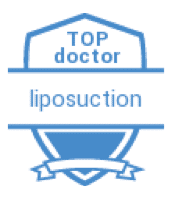Understanding Cosmetic Melanosis

By: Dr. Janani Palanivel
Dermatologist
It is human nature to try and be what you are not or get what you don’t have. The straight haired want it curly and the curly haired want it straight, those who are dusky skinned want to be fairer. What we have is never what we want. Talk of the grass always being greener on the other side.
Perhaps paramount among these wants is the need we feel to look fairer than we are. Because of this, the quest for the perfect fairness product is always on. Along with more spending power the need to become fairer is growing at such a pace, that people are often swept down the garden path by marketing gimmicks. Various pharmaceutical companies and cosmetic corporations endorse skin-lightening products through whatever media they can, whether it is print, internet or television. Buyers are so swept away by the promise of a fairer skin that they forget to ask relevant skin saving questions. How exactly do these products work? What could be the possible results or side effects (if any)? Are the results long lasting?
Harms of Hq
Hydroquinone (Hq) is the most common de-pigmenting agent available in the market. It gives a drastic colour change over a short period. However, the FDA and other standard setting agencies have reported that long term use of Hq can result in blue-black darkening and thickening of skin, a condition called ochronosis.
A study was conducted amongst darker skin individuals from two South African hospitals. Among 69% of patients who used skin-lightening agents, 42% of females and 15% of males were recognised with ochronosis. Hq also makes skin sensitive to sunlight. Hence, it is mandatory to use good sun-safety measures when using Hq containing products. Nevertheless, most patients who buy OTC products are not aware of the importance of sun protection, and notice skin darkening in spite of using this ‘fairness cream’ constantly.
In fact, Hq is banned in certain parts of the world because of its long-term side effects. In India, 2% Hq is available over the counter and 4% available via doctor’s prescription. The National Toxicology Programme, which provides scientific study data to FDA in the U.S., is still assessing the long-term dermal toxicity effects of Hq. A few animal studies indicate that oral Hq has carcinogenicity and immuno-toxic properties. This means they are harmful if consumed orally.
Tribulations of Tretinoin
In addition to Hq, the other common ingredients in skin glow products are steroids and Tretinoin (Vitamin A derivative). Tretinoin helps in penetration of Hq, whilst steroids help in reducing the irritation caused by Tretinoin and Hq. This combination is studied worldwide and is proven effective in skin lightening. However, if used over a wide time frame, steroids can result in side effects such as acne, hirsutism, telengectesia (fine blood vessels under skin) and skin weakening. Similarly, imprudent use of Tretinoin can result in retinoid dermatitis, where there is intense irritation, dryness and redness of the skin. Using Hq and Tretinoin continuously in areas with thin skin such as nasolabial folds and around eyes, can result in hyperchromia (skin darkening). It is important you consult a qualified dermatologist before using these products, as he or she will advise you rightly on how to apply these products and for how long to apply.
Banes of Bleaching
Another common way of masking skin pigmentation is through the use of bleaching agents. In many areas, unregulated products are sold without listing their contents. These agents often contain steroids, Hq and mercury oxide. In most bleaching products, Hq may be included with different names such as Quinol, Benzene-1, 4-Diol, Tequinol and many more. The lay person is not aware of the exact product contents and their effects. Here is information: Mercury can slowly but surely cause skin and nail darkening. In a study conducted on 620 women from Saudi Arabia, most were forced to continuously use the bleaching agents, as stopping them caused more darkening of the skin.
See a Specialist
The only way to fairness is to understand the reasons behind your individual skin pigmentation. Once you know the how and the why of your skin, your dermatologist will be able to suggest a course of action. The reasons can be the simple effects of sun damage to inflammatory skin disorders. Now for the good news: a doctor’s palette of skin brightening treatment options is increasing tremendously. They range from external applying agents to physical treatment options such as chemical peeling and lasers.
Remember, treatment through a skin specialist will be individualised according to patient’s skin characteristic and cosmetic concerns. This is quite unlike OTC products that could cause adverse effects such as Cosmetic Melanosis.
 A formal assessment with the skin specialist will help you:
A formal assessment with the skin specialist will help you:
- Understand the pigmentary problem in depth
- Understand different treatment options
- Choose the option according to your concern and skin type
- Understand how the treatment works
- Take precautions while switching treatment options
- Understand the side effects, if any, and how to get them treated












